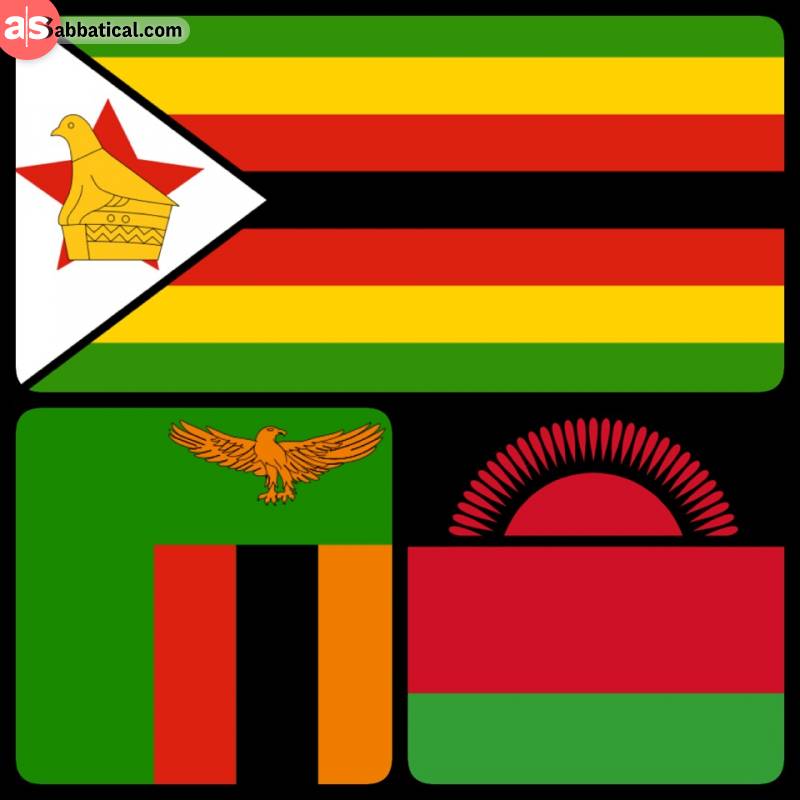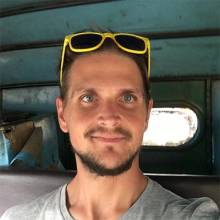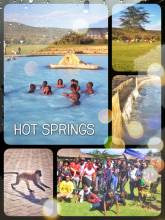Rhodesia and Nyasaland
Introduction: landlocked, unknown, neglected
The territory in between Eastern and Southern Africa is not well known. Only Zimbabwe
is not well known. Only Zimbabwe because of its eccentric ruler for lifetime gets some attention. The mighty Victoria Falls was the only tourist attraction I heard of before this journey. As the European fore-trekkers some centuries ago, I felt adventurous when arriving from Tanzania
because of its eccentric ruler for lifetime gets some attention. The mighty Victoria Falls was the only tourist attraction I heard of before this journey. As the European fore-trekkers some centuries ago, I felt adventurous when arriving from Tanzania . Within two weeks, I wanted to cross and discover Malawi
. Within two weeks, I wanted to cross and discover Malawi (former Nyasaland), Zambia
(former Nyasaland), Zambia and Zimbabwe (former Rhodesia).
and Zimbabwe (former Rhodesia).
Malawi: laid back and left behind by globalisation
Not for the first time, I felt the difference when crossing the border. Malawi is visibly poorer than its large neighbour in the North, Tanzania. The customs officers tried everything, not to issue a cheaper Transit Visa and to get some extra payment. Interestingly, the same officer stopped a street vendor to sell me an overpriced – yet still cheap – Coke. The next shock came at the ATM, where the maximum was 40$, issued in the countries largest bank notes of 1,000 Quatscha (1$). Even the capital, Lilongwe, feels like a rural township. Life plays along the great Lake Malawi, where everybody is fishing and selling crafts. At the Lake of Stars festival, I danced once again into the sunrise and then jumped into the refreshing water. For some days, I enjoyed the relaxed and basic lifestyle.
Zambia: a little wealth through natural resources
Copper and other minerals made a difference in Zambia. The country is not particularly wealthy, but still more developed as its neighbours. On smooth asphalt roads, I crossed the country westwards. The capital, Lusaka, feels like a miniature Nairobi. Between the cities, lies a vast land and some lonely traditional huts. Many undeveloped National Parks attract off-road safari tours. The country’s name is derived from the great Zambezi river. My path took me upriver from the wide Lower Zambezi to narrow canyons. On the footsteps of Livingstone, I reached the Victoria Falls on its driest season. They impressed not through thundering water, but through millennia carved and eroded rocks.
Zimbabwe: greatest heritage of southern Africa
Crossing the border over the fall’s canyon was spectacularly unspectacular. In Zimbabwe, I was welcomed by extraordinarily friendly customs officers. On the road, I soon realized what everybody was warning me from. Every 20km, a group of police officers tried to make some money through false accusations and harassment – like finding Marihuana! I patiently played along and talked my way out until they gave up. In the Southwest, I learned more about Zimbabwe’s great history. First, I climbed up holy rocks to discover ancient cave paintings from the Stone Age. Then, I climbed stone ruins from the Bantu tribes, before exploring the greatest colonial Natural History Museum. Zimbabwe is rich in culture and history.
Rhodesia: the colonial empire of a single man
Cecil Rhodes’ legacy is only slowly fading away. No other man left more colonial traces as this British explorer and entrepreneur. He dreamt of a railway connection from Cairo to Cape Town and formed the ominous De Beers diamond monopoly. After all, the former state’s name of Rhodesia was dedicated to his remarkable achievements. Under the British flag, Zimbabwe, Zambia and Malawi were united for a short period. Through several museums, books and personal conversations, I tried to put the pieces together. The African continent has much more to offer than diamonds and lions.
Summary: endless potential, yet to be unfolded
On my journey, I crossed three completely different countries. Besides neighbouring each other, they had not much in common. After their independence, about sixty years ago, they evolved independently. Besides the past copper boom in Zambia, all seem to be left behind by the recent globalisation. This could be attested to their geographic location, climate, traditions or former mismanagement. On the street, the people were openly asking me for the help from the international community. In many occasions, I felt compassion, but also helpless. Foreign aid or fair trade will not fix the situation. National as well as international politics have to change.
Thanks to all the people who shared their suffering with me and good luck to you!




